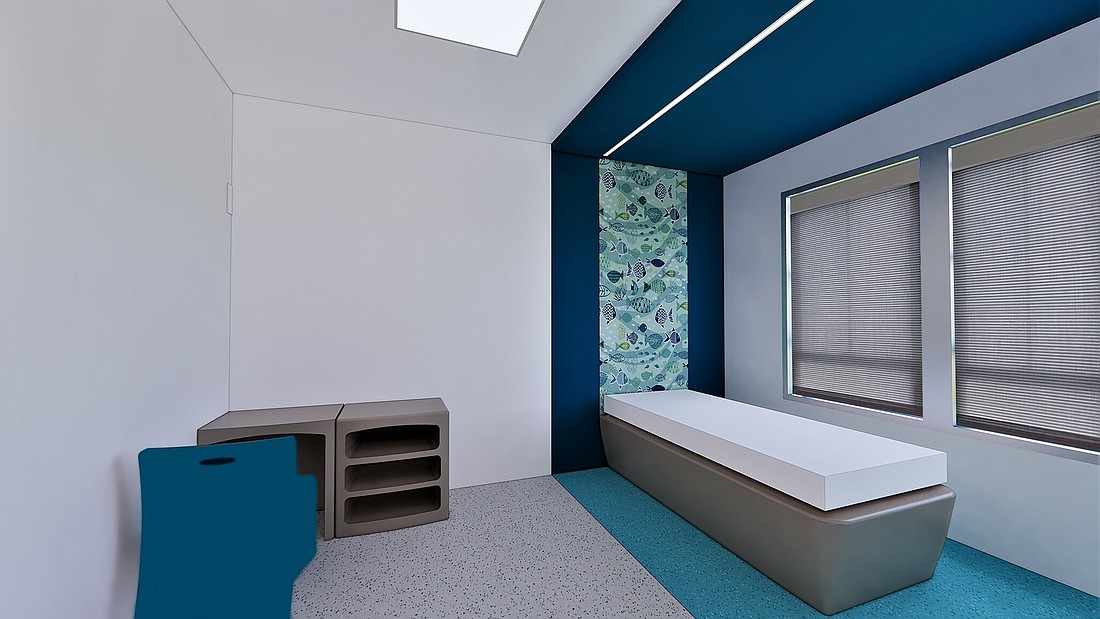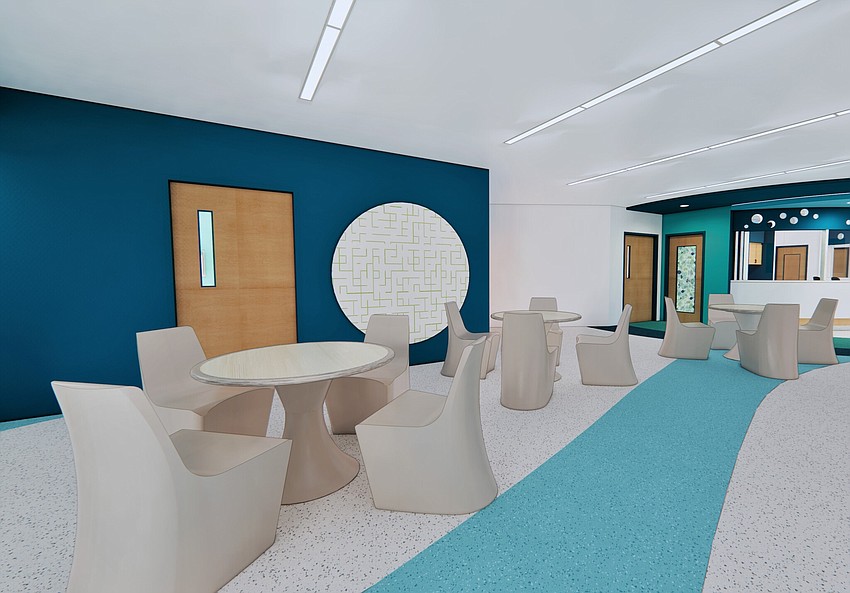
The city issued a permit for a $7.28 million interior renovation at Wolfson Children’s Hospital at 800 Prudential Drive on the Downtown Southbank.
The 31,600-square-foot, 20-bed inpatient behavioral health unit is expected to open in spring 2024.
The facility will be on the third floor and replace the Pediatric Intensive Care Unit.
Danis Construction LLC is the contractor.
The intensive care unit moved to the Borowy Family Children’s Critical Care Tower in 2022.
Currently, Wolfson Children’s Hospital has a 14-bed Larry J. Freeman Behavioral Health Unit on the first floor of the J. Wayne and Delores Barr Weaver Tower.
There also is an eight-bed behavioral health pod in the main Wolfson Children’s Emergency Center.
When the facility is completed, Wolfson will have 41 pediatric intensive care unit beds.
Wolfson Children’s Hospital is part of Baptist Health.

According to Baptist Health, funding for the unit included a $3 million donation from The Players Championship Village Inc. in May. The state provided an additional $5 million in 2023-24 budget, which went into effect July 1.
“For decades, Baptist Health has made it our mission to address this critical need for Northeast Florida and beyond,” said Michael A. Mayo, president and CEO of Baptist Health, in a news release.
“While it is a significant investment, it is necessary to address health and well-being from a holistic perspective.”
According to the release, the need for pediatric inpatient behavioral health care is a growing concern. There are 65 beds from Daytona Beach to Fernandina Beach, the release said.

During the pandemic, there was a waiting list of about 50 young people needing treatment at Wolfson Children’s Hospital, said Terrie Andrews, vice president of behavioral health at Baptist Health and Wolfson Children’s Hospital.
The disruption of routine and isolation caused by the inability to socialize or participate in sports and other activities led to cases of anxiety and depression, she said.
“The majority of the time we have patients that bring their children and adolescents to us on a voluntary basis. This means people are seeking us out for our help,” Andrews said.
A rendering shows a room in the unit that looks like an efficiency apartment rather than a hospital room. However, the rooms are ligature resistant and use special hardware for doorknobs, hinges, bathroom fixtures and more to prevent patients from harming themselves.
The doors are pressure sensitive with alarms to alert staff to potential problems.
“We put in a lot of safety measures to be able to help them,” Andrews said.
Patients are encouraged to spend time with others by socializing or taking part in group therapy. They participate in yoga, stretching exercises and other activities.
“As much as they say they don’t want structure, teens need structure,” Andrews said.
The need for these facilities is growing, she said.
“Research shows that prior to the pandemic about one in five (children and teens) will experience some sort of mental health issue. Now we are seeing literature that it is about one in three,” she said.
“We’ve got to find ways to intervene sooner and reduce the likelihood of a child or adolescent needing inpatient psychiatric care.”